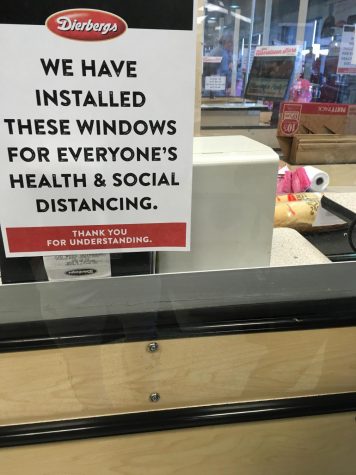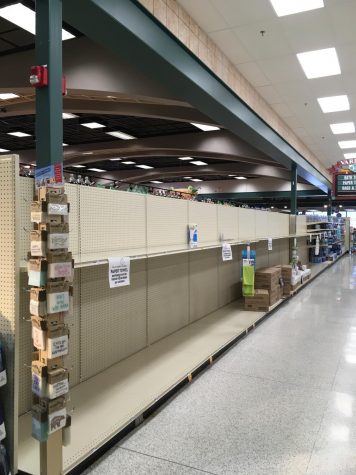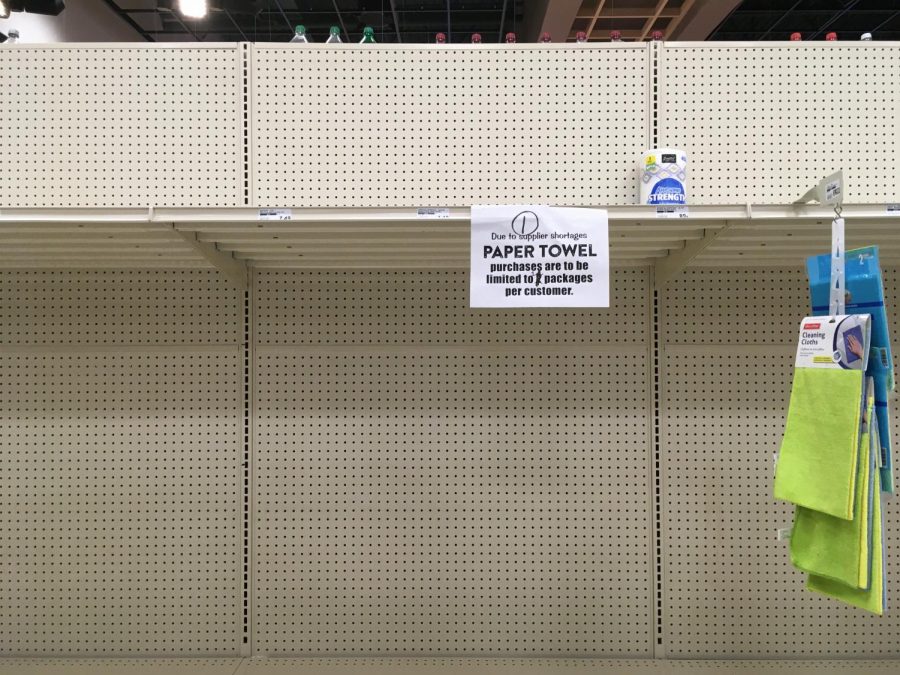Is the COVID-19 virus blown out of proportion?
Most stores have put limits on toilet paper, usually one per person.
The COVID-19 virus, or coronavirus as it is commonly referred as, is a respiratory infection that has taken the world by storm since it began in Wuhan, China. While it has existed since January of 2020, or even possibly December of 2019, the virus has spurred reactions from the public that mirror that of a deadly disease. Non-essential businesses have been shut down, schools have been shut down, people are buying copious amounts of day-to-day essentials like toilet paper and hand sanitizer, and the government advises to avoid large groups of people. This begs the question: is the COVID-19 infection being blown out of proportion, or are the reactions of the public justified?
First, we need to look at how the virus spreads and the symptoms. Similar to a common cold or flu, the virus is spread by coughing, and can stay in the air for hours. One terrifying difference between the two is that because this coronavirus is so new, studies are still being done and some people that have it are unaware that they have it, and can spread it to more susceptible people. There’s usually common symptoms to most diseases. This idea of people being unaware that they have it at all does justify social distancing to some extent, to keep people away from people who it could be deadly to, like the elderly or people who have had past health issues.
Second, we need to look at the statistics of the virus to determine if the precautions being taken are justified. Currently, as of April 2nd 2020, there have been 997,465 worldwide cases of the virus. 50,980 have died, and 208,651 have recovered, while 737,834 are currently being monitored. Currently 95% of people being monitored are in mild condition, while 5% are in serious or critical condition. This also supports the idea that of those who have it, a very minor amount of people die from it. While most cases of death occur in those more susceptible, the media highlights those who are younger that die, despite these cases being very rare. While this does mean that most who get it likely won’t die, is the reaction to this pandemic worth lowering the spread of the virus?
One major and evident effect of the pandemic is the effect on the economy. The shutting down of various businesses deemed non-essential has taken a definitive economic toll on America’s economy, stocks going up and down by the day, the government is also providing loans and money to every American, like the bill passed by Congress to grant every American adult 1,200 dollars and child 500 dollars to promote spending and to mellow the economic stress put on Americans who currently don’t have jobs. While bills like this do help, it isn’t a permanent solution to the current economic strain in America. Right now, the virus is predicted to end around early June, but pandemics in the past often lasted 12-36 months. Right now, with the predicted peak of the virus not yet reached, there’s no saying how long businesses could be closed.
With any outbreak, there’s always precautions that need to be taken. People should absolutely stay inside, wash their hands often, and be cautious around other people, but shouldn’t panic. While people don’t often die, there’s always a chance that someone you interact with could be susceptible, so for yours and the sake of the people around you, social distancing is absolutely important to keep people safe, and to get this disease under control as we continue to learn more about it.















Ronald E. Yaskovic • Apr 28, 2020 at 3:38 AM
According to the CDC(2017) up to 80,000 people die of the flu every year. So why is this viral outbreak so different ? My feeling it is due to society squeezing hospitals and medical people financially. Just think of how many hospitals have been closed. In my home town of Yonkers alone, there have been 3 hospitals closed. So now we have shortages of beds and equipment !
bill • Apr 7, 2020 at 9:03 AM
One of the biggest LIE EVER imposed on mankind.